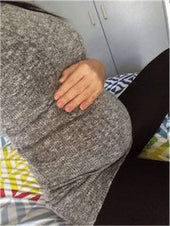Sticky spermatozoa could hold fertility key
Researchers from the University of Leeds think that sticky spermatozoa could hold the key to greater success for couples undergoing IVF treatment.
The largest clinical trial to date aimed at testing this idea is being launched October 28th, the first day of National Infertility Awareness Week.
The £1.3m trial, funded by the National Institute for Health Research Efficiency and Mechanism Evaluation (NIHR EME) Programme, will be piloting a new IVF method that relies on picking only mature and fertile spermatozoa that stick to a specially coated plate for injection into the egg.
The coating is made of hyaluronan, a naturally-occurring substance that is frequently used in clinical treatments as a lubricant, for example, in joints including the knee, and by the cosmetics industry as a component in rejuvenating products, such as skin creams. Dr David Miller, of the Faculty of Medicine and Health at the University of Leeds, is leading the trial. He said: "It is fascinating that a substance with such strong lubricating properties should be sticky for some, but not all, sperm.
We think that this paradoxical property is what gives only mature and healthy sperm with little or no DNA damage the ability to latch on to the coat that surrounds the egg.
" On average, three out of four IVF treatment cycles for couples currently end in failure. The trial will test this new selection method in the assisted conception clinic by comparing it with existing methods of spermatozoa selection. Experts at the University of Leeds alongside colleagues from research laboratories at Sheffield University, Birmingham University and Queen's University in Belfast will also be investigating whether this new selection method based on sperm stickiness works by minimising the risk of injecting a sperm carrying damaged DNA into the egg.
The aim is to recruit 3,700 couples across up to fourteen assisted conception units in the United Kingdom, including Seacroft Hospital, Leeds; Sheffield Women's Hospital; Guy's and St Thomas' Hospital, London; St Bartholomew's Hospital, London; St Mary's Hospital, Manchester; Birmingham Women's Hospital, Princess Anne Hospital, Southampton; Ninewells Hospital, Dundee and Aberdeen Maternity Hospital. More centres will be coming on board in the new year. Clare Lewis-Jones, chief executive of Infertility Network UK, the patient charity which is behind the UK's first National Infertility Awareness Week, said:
"We are always pleased to hear about any new research which might help patients who are struggling to conceive and we look forward to hearing more about the progress of the trial. It's not always easy to have a baby and we welcome new advances which may increase success rates of fertility treatment."











